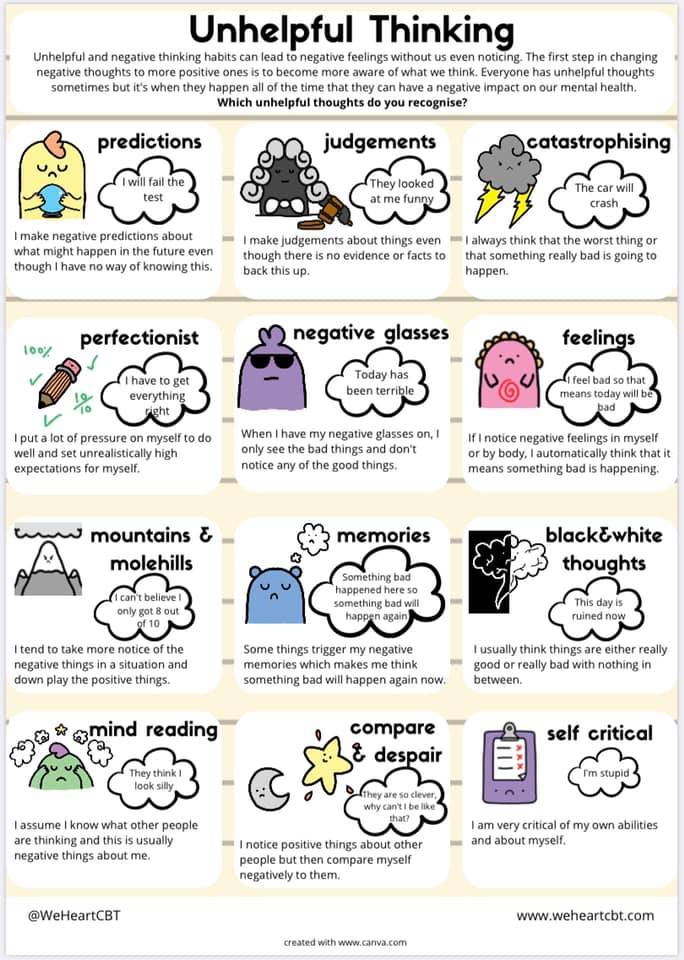- A Quick Guide
- How to cope with test anxiety
- 1. Get a full night’s sleep before your exam.
- 2. Keep your nutrition proper.
- 3. Identify and counter your negative thoughts.
- 4. Practice Relaxation exercises.
- 5. Practice Guided imagery.
- 6. Develop skill-focused strategies.
- 7. Organize information in your mind during the test.
- 8. Practice the worst possible situation technique.
- 9. Go for counseling.
A Quick Guide
Test anxiety refers to the fear of failure in testing situations. People who experience this, exhibit a range of physical, cognitive, emotional, and behavioral symptoms. Many people struggle to cope with test anxiety due to the high intensity of their symptoms. A few strategies that can be utilized are discussed as follows.
How to cope with test anxiety
The following suggestions may be effective for regulating anxiety before an exam:
1. Get a full night’s sleep before your exam.
Pulling all-nighters during exams seems like the most rational thing to do at that moment. but remember having an eight-hour sleep is integral to keeping your mind fresh and active during the test when you require it the most. If you struggle with falling asleep due to anxiety, consider practicing guided meditations or other sleep strategies available online.
2. Keep your nutrition proper.
It is natural that our eating patterns get disrupted we have a big test/exam coming up. We may over-eat or under-eat due to our nervousness. However, pay extra attention to your nutrition. Especially, try to avoid coffee or tea since even though they help you to stay awake for a cramming session, their components may add to your anxiety symptoms.
Similarly, avoid spicy and oily food as they may make the physiological symptoms of anxiety worse e.g. diarrhea, burning, improper digestion, etc.
3. Identify and counter your negative thoughts.
The cycle of test anxiety keeps in a loop because of the threatening nature of our thoughts before the exam. We naturally assume we are not smart enough or we will fail or that others will be disappointed in us etc. These thoughts come from our underlying beliefs about failure and competence. To change them, start being mindful when you have these negative thoughts. Pick them out and reframe them.
For example, ‘‘I don’t know anything. I will definitely fail tomorrow’ may be reframed to say ‘I have studied hard for this. So I know quite a bit. This does not guarantee my failure”.
Similarly, try to identify the cognitive errors in your thoughts from the following list. Reframe these to be more neutral.

4. Practice Relaxation exercises.
Relaxation exercises such as deep breathing and progressive muscle relaxation are useful for managing the physiological symptoms of anxiety. If you notice that your anxiety is becoming overwhelming right before the test e.g. your heart is racing, your breathing is irregular, you are sweating, etc. close your eyes and practice the deep breathing technique. This will help to keep your nerves in check.
Similarly, progressive muscle relaxation is also useful in keeping the body muscles relaxed. Look up the step-by-step guides for these on the internet. Practice them daily or whenever you feel the need.
5. Practice Guided imagery.
If you anticipate an upcoming test, use a visualization strategy i.e., guided imagery to prepare for it. Imagine yourself being calm while completing the test to the best of your ability in these visualizations. You can access the step-by-step guide for guided imagery for test anxiety on YouTube.
6. Develop skill-focused strategies.
Many people with test anxiety may have deficits in their study and test-taking skills. For example, errors in learning strategy, rehearsal, retrieval/recall, not knowing which test attempting mistakes to avoid, etc. Such a lack of skills along with test anxiety may have a detrimental effect on one’s performance in the exam. Therefore, learn and develop these skill-focused strategies by seeing how achieving students perform, and by reading books and articles about it online.
7. Organize information in your mind during the test.
People with test anxiety may have trouble organizing the information in their minds during the exam. This adds to their fear that they can’t recall the learned information or don know the answer. To deal with this, if you encounter such questions in the exam, keep calm and do the ones you know better. At the end of the test, brainstorm one-word pointers that you can possibly write as answers. Organize them in the form of headings and subheadings and then write them down. Arranging and organizing the information first will help you to express yourself better.
8. Practice the worst possible situation technique.
Anxiety often fuels or increases in response to our ‘What if?’ thoughts. So the fear of the unknown in test anxiety enhances our worry. We think of the worst possible situations and underestimate our ability to cope with them which only increases the pressure on us.
To deal with this, imagine the worst possible situation in detail and plan or practice what you will do to prepare for it. Have faith in your coping abilities for such situations. Once you will do that, you will feel much calmer. However, practice this technique with caution. Since it may work for some people but increase anxiety for others.
For example, ‘What if I fail?’ If that happens, I will not be able to live’. Here one can apply the above technique to say ‘Okay. So in case, I do fail, what’s the worst that can happen? I will get scolded by my parents or the teacher. That would be unpleasant but that’s it. I can bear that. So, even then, it’s okay since I can give the supplementary exam and do better in it. Having given the exam before will help me be more prepared the next time’.
9. Go for counseling.
If your university or college provides counseling services, access them and learn from a professional how to deal with test anxiety.
Watch: [Mental Health Monday: Test anxiety and solutions to cope]
We hope you will be able to cope with test anxiety by utilizing the above strategies. To understand more about test anxiety; read Test Anxiety & its signs: What is it and how to identify it? and The causes of test anxiety and its cycle: The underlying process


